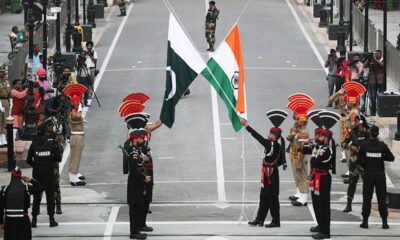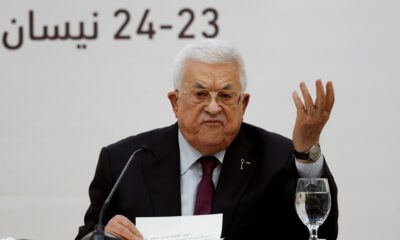World
South Korean presidential guards prevent arrest of impeached Yoon after tense stand-off

South Korea’s presidential guards and military troops prevented authorities from arresting impeached President Yoon Suk Yeol on Friday in a tense six-hour stand-off inside Yoon’s compound in the heart of Seoul.
Yoon is under criminal investigation for insurrection over his Dec. 3 martial law bid that stunned South Korea and led to the first arrest warrant to be issued for a sitting president.
“It was judged that it was virtually impossible to execute the arrest warrant due to the ongoing standoff,” the Corruption Investigation Office for High-ranking Officials (CIO) said in a statement, Reuters reported.
CIO officials and police evaded hundreds of Yoon supporters who gathered in pre-dawn hours near his residence on Friday, vowing to block the arrest “with our lives”.
Officials from the CIO, which is leading a joint team of investigators, arrived at the gates of the presidential compound shortly after 7 a.m. (2200 GMT Thursday) and entered on foot.
Once inside the compound, the CIO and police were outnumbered by cordons of Presidential Security Service (PSS) personnel, as well as troops seconded to presidential security, a CIO official told reporters.
More than 200 PSS agents and soldiers blocked the CIO officers and police, he added. While there were altercations and PSS agents appeared to be carrying firearms, no weapons were drawn, he said.
Yoon, who has been isolated since he was impeached and suspended from power on Dec. 14, was not seen during the standoff, he said.
South Korea’s defence ministry said the troops were under the control of the PSS.
The CIO called off the effort to arrest Yoon around 1:30 p.m. due to concerns over the safety of its personnel, and said it “deeply regretted” Yoon’s non-compliance.
The CIO said it would consider its next steps. The police, who are part of the joint investigation team, have designated the PSS chief and the deputy as suspects in a criminal case for obstruction of official duty and issued summons for them to appear for questioning on Saturday, Yonhap news reported.
Insurrection is one of the few criminal charges from which a South Korean president does not have immunity.
Yoon’s arrest warrant, approved by a court on Tuesday after he ignored multiple summons to appear for questioning, is viable until Jan. 6.
In a statement after the arrest effort was suspended, Yoon’s legal team said the CIO had no authority to investigate insurrection and it was regrettable that it had tried to execute an illegal warrant in a sensitive security area.
The statement warned police against supporting the arrest effort. The presidential office filed a criminal complaint against three broadcasters and YouTube channel owners for unauthorized filming of the presidential residence, which it said was “a secured facility directly linked to national security.”
The current warrant gives investigators only 48 hours to hold Yoon after he is arrested. Investigators must then decide whether to request a detention warrant or release him.
Kim Seon-taek, a Korea University law professor, said targeting the PSS leadership may allow the investigators to sap the service’s ability to put up resistance so they can try again to execute the warrant, which is “a rough way” to proceed.
A better way, he said, would be for acting President Choi Sang-mok to exercise his power to order the PSS to cooperate. Later on Friday, the CIO said it would ask Choi to give that order.
SURPRISE MARTIAL LAW
Yoon sent shockwaves through Asia’s fourth-largest economy and one of the region’s most vibrant democracies with his late-night announcement that he was imposing martial law to overcome political deadlock and root out “anti-state forces”.
Within hours, however, 190 lawmakers had defied the cordons of troops and police to vote against Yoon’s order. About six hours after his initial decree, Yoon rescinded it.
He later issued a defiant defence of his decision, saying domestic political opponents are sympathetic to North Korea and citing uncorroborated claims of election tampering.
Two South Korean military officials, including the martial law commander during the short-lived declaration, have been indicted on insurrection charges, Yonhap reported on Friday.
Kim Yong-hyun, who resigned as Yoon’s defence minister after playing a major role in the martial law decree, has been detained and was indicted last week on charges of insurrection and abuse of power.
Separate from the criminal investigation, Yoon’s impeachment case is before the Constitutional Court to decide whether to reinstate or permanently remove him. A second hearing in that case was held on Friday and the court set the first oral arguments for Jan. 14.
Bae Jin-han, one of the lawyers for Yoon, told reporters Yoon may not appear for the first arguments but will likely do so at a future hearing to argue his position.
North Korea’s state media published a detailed report on the political turmoil in the South, including the arrest warrant issued for Yoon, who it said “stubbornly refuses to be investigated, totally denying his crimes with sheer lies.”
North Korea has been harshly critical of Yoon, citing his hardline policy against Pyongyang as grounds in declaring the South a “primary foe” and announcing it had abandoned unification as a national goal.
World
Ukraine ready to hold talks with Russia once ceasefire in place, Zelenskiy says
Zelenskiy said he would be happy to meet U.S. President Donald Trump later this week when they attend the funeral of Pope Francis along with other world leaders.
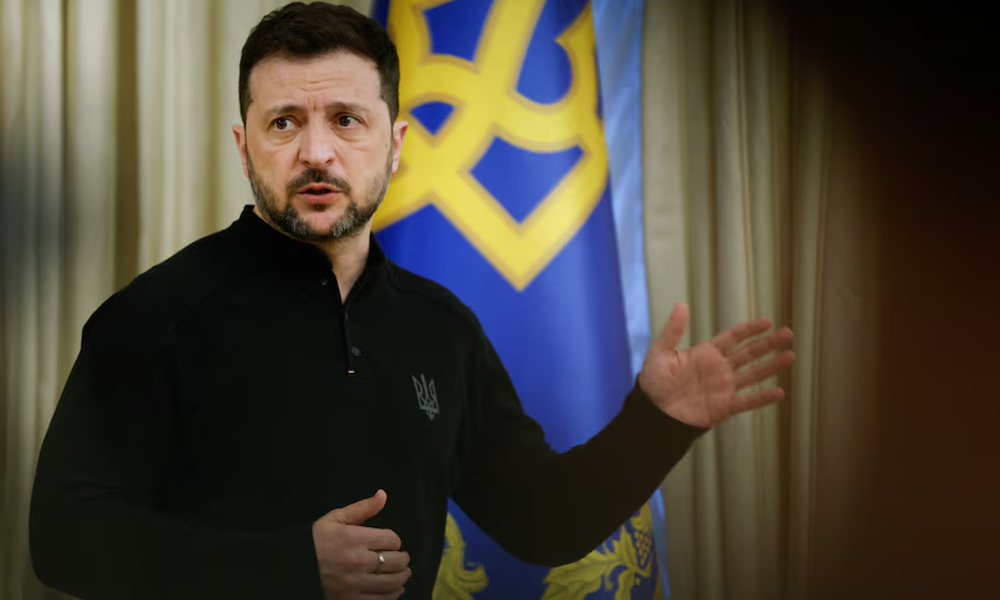
President Volodymyr Zelenskiy said on Tuesday that Ukraine would be ready to hold talks with Russia in any format once a ceasefire deal is in place and the fighting has stopped, Reuters reported.
The Ukrainian leader also told reporters at a briefing that a Ukrainian delegation meeting officials from Western countries in London on Wednesday would have a mandate to discuss a full or partial ceasefire.
“We are ready to record that after a ceasefire, we are ready to sit down in any format so that there are no dead ends,” Zelenskiy said in the presidential office in Kyiv.
“It will not be possible to agree on everything quickly,” he warned, noting numerous highly complex issues such as territory, security guarantees and Ukraine’s membership in the NATO military alliance.
He said that Ukraine would not recognise Moscow’s de jure control of the peninsula of Crimea as part of any deal as such a move would go against the Ukrainian constitution. Russia seized Crimea in 2014 and later annexed it.
Ukraine, he said, would be ready to partner with the United States to restore the work of the vast, Russian-occupied Zaporizhzhia nuclear power plant. There had been no such formal proposal from Washington about that, however, he added.
The talks in London, which are set to bring together officials from the United States, Britain, France, Germany and Ukraine, come amid a flurry of U.S.-led diplomatic efforts to find a way to end Russia’s war with Ukraine, read the report.
In an apparent change of plan, U.S. Secretary of State Marco Rubio will not be attending the talks in London, a State Department spokesperson said on Tuesday, adding that Washington’s Ukraine envoy General Keith Kellogg would attend.
Zelenskiy said he would be happy to meet U.S. President Donald Trump later this week when they attend the funeral of Pope Francis along with other world leaders.
Ukraine, Zelenskiy said, would also step up its diplomatic outreach this week and that he would meet South African President Cyril Ramaphosa, as well as the leaders of Spain, Poland and the Czech Republic.
World
Putin says he is open to direct peace talks with Ukraine
Zelenskiy, in his nightly video address, said Ukraine stood by its proposal for an end to attacks on civilian targets and was ready for any form of discussion to achieve it.

Russian President Vladimir Putin proposed on Monday bilateral talks with Ukraine for the first time since the early days of the war, and his Ukrainian counterpart Volodymyr Zelenskiy said Kyiv was eager to discuss a halt to attacks on civilian targets, Reuters reported.
While Zelenskiy did not respond directly to Putin’s proposal, he emphasized in his nightly video address that Ukraine “was ready for any conversation” about a ceasefire that would stop strikes on civilians.
The two leaders face pressure from the United States, which has threatened to walk away from its peace efforts unless some progress is achieved.
Russia and Ukraine have said they are open to further ceasefires after a 30-hour Easter truce declared by Moscow at the weekend. Each side accused the other of violating it.
Ukraine will take part in talks with the U.S. and European countries on Wednesday in London, Zelenskiy said. The discussions are a follow-up to a Paris meeting last week where the U.S. and European states discussed ways to end the more than three-year-old war, read the report.
Putin, speaking to a Russian state TV reporter, said fighting had resumed after the Easter ceasefire, which he announced unilaterally on Saturday. And Moscow, he said, was open to any peace initiatives and expected the same from Kyiv.
“We have always talked about this, that we have a positive attitude towards any peace initiatives. We hope that representatives of the Kyiv regime will feel the same way,” Putin told state TV reporter Pavel Zarubin.
Kremlin spokesman Dmitry Peskov, quoted later by Interfax news agency, told reporters: “When the president said that it was possible to discuss the issue of not striking civilian targets, including bilaterally, the president had in mind negotiations and discussions with the Ukrainian side.”
There have been no direct talks between the two sides since the early weeks after Russia’s February 2022 invasion, Reuters reported.
Zelenskiy, in his nightly video address, said Ukraine stood by its proposal for an end to attacks on civilian targets and was ready for any form of discussion to achieve it. Previously, the U.S. and Ukraine had framed this as a 30-day ceasefire.
“Ukraine maintains its proposal not to strike at the very least civilian targets. And we are expecting a clear response from Moscow,” he said. “We are ready for any conversation about how to achieve this.”
He said the London talks “have a primary task: to push for an unconditional ceasefire. This must be the starting point.”
Zelenskiy had earlier on Monday said an unconditional ceasefire would be “followed by the establishment of a real and lasting peace”.
Washington has said it would welcome an extension of the weekend truce. Zelenskiy said continued Russian attacks during the Easter ceasefire showed Moscow was intent on prolonging the war, read the report.
Zelenskiy also said that Ukraine’s forces were instructed to continue to mirror the Russian army’s actions.
“The nature of Ukraine’s actions will remain symmetrical: ceasefire will be met with ceasefire, and Russian strikes will be met with our own in defence. Actions always speak louder than words,” he said on X.
U.S. President Donald Trump and Secretary of State Marco Rubio both said on Friday that Washington could abandon the peace talks without progress within days. Trump struck a more optimistic note Sunday, saying that “hopefully” the two sides would make a deal “this week”.
Russia’s demands include Ukraine ceding all the land Putin claims to have annexed and accepting permanent neutrality. Ukraine says that would amount to surrender and leave it undefended if Moscow attacks again.
“President Putin and the Russian side remain open to seeking a peaceful settlement. We are continuing to work with the American side and, of course, we hope that this work will yield results,” Peskov told reporters.
World
Pentagon chief Hegseth shared sensitive Yemen war plans in second Signal chat, source says
The revelations of a second Signal chat raise more questions about Hegseth’s use of an unclassified messaging system to share highly sensitive security details
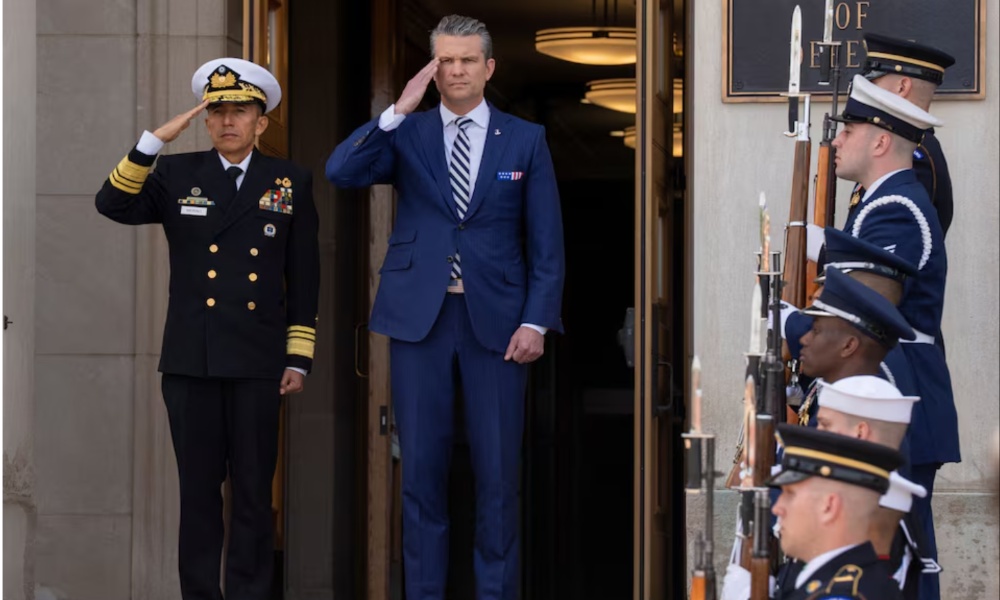
U.S. Defense Secretary Pete Hegseth shared details of a March attack on Yemen’s Iran-aligned Houthis in a message group that included his wife, brother and personal lawyer, a source familiar with the matter told Reuters on Sunday.
The revelations of a second Signal chat raise more questions about Hegseth’s use of an unclassified messaging system to share highly sensitive security details and come at a particularly delicate moment for him, with senior officials ousted from the Pentagon last week as part of an internal leak investigation.
In the second chat, Hegseth shared details of the attack similar to those revealed last month by The Atlantic magazine after its editor-in-chief, Jeffrey Goldberg, was included in a separate chat on the Signal app by mistake, in an embarrassing incident involving all of President Donald Trump’s most senior national security officials.
The person familiar with the matter, who was speaking on condition of anonymity, said the second chat included about a dozen people and was created during his confirmation process to discuss administrative issues rather than detailed military planning.
The chat included details of the schedule of the air strikes, the person said.
Hegseth’s wife, Jennifer, a former Fox News producer, has attended sensitive meetings with foreign military counterparts, according to images the Pentagon has publicly posted.
During a meeting Hegseth had with his British counterpart at the Pentagon in March, his wife could be seen sitting behind him.
Hegseth’s brother is a Department of Homeland Security liaison to the Pentagon.
The Trump administration has aggressively pursued leaks, an effort that has been enthusiastically embraced by Hegseth at the Pentagon.
Pentagon spokesperson Sean Parnell, without evidence, said that the media was “enthusiastically taking the grievances of disgruntled former employees as the sole sources for their article.”
“The Trump-hating media continues to be obsessed with destroying anyone committed to President Trump’s agenda. … We’ve already achieved so much for the American warfighter, and will never back down,” Parnell said in a statement on X.
White House spokesperson Anna Kelly said that “recently fired ‘leakers’ are continuing to misrepresent the truth to soothe their shattered egos and undermine the President’s agenda.
Democratic lawmakers said Hegseth could no longer stay in his job.
“We keep learning how Pete Hegseth put lives at risk,” Senate Minority Leader Chuck Schumer said in a post to X. “But Trump is still too weak to fire him. Pete Hegseth must be fired.”
Senator Tammy Duckworth, an Iraq War veteran who suffered grave injuries in combat in 2004, said that Hegseth “must resign in disgrace.”
A U.S. official at the Pentagon questioned how Hegseth could keep his job after the latest news.
The latest revelation comes days after Dan Caldwell, one of Hegseth’s leading advisers, was escorted from the Pentagon after being identified during an investigation into leaks at the Department of Defense.
Although Caldwell is not as well known as other senior Pentagon officials, he has played a critical role for Hegseth and was named as the Pentagon’s point person by the Secretary in the first Signal chat.
“We are incredibly disappointed by the manner in which our service at the Department of Defense ended,” Caldwell posted on X on Saturday. “Unnamed Pentagon officials have slandered our character with baseless attacks on our way out the door.”
Following Caldwell’s departure, less-senior officials Darin Selnick, who recently became Hegseth’s deputy chief of staff, and Colin Carroll, who was chief of staff to Deputy Defense Secretary Steve Feinberg, were put on administrative leave and fired on Friday. – REUTERS
-

 International Sports3 days ago
International Sports3 days agoIPL 2025: Robo-Dog ‘Champak’ explained
-

 Latest News4 days ago
Latest News4 days agoAriana Afghan Airlines increases flights to China
-

 World4 days ago
World4 days agoPentagon chief Hegseth shared sensitive Yemen war plans in second Signal chat, source says
-

 Latest News3 days ago
Latest News3 days agoAfghan-American appointed to lead US policy on Afghanistan
-

 Latest News4 days ago
Latest News4 days agoChina invites various Afghan delegations to attend Shanghai forums
-
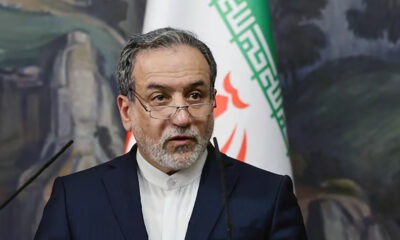
 Regional3 days ago
Regional3 days agoIran’s top diplomat to visit China on Tuesday
-
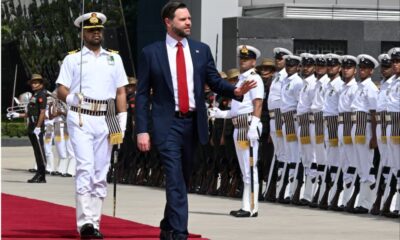
 Regional4 days ago
Regional4 days agoJD Vance arrives in India, to hold talks with Modi under US tariffs shadow
-
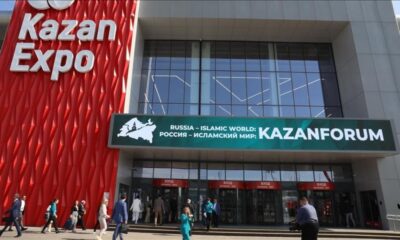
 Latest News3 days ago
Latest News3 days agoAfghanistan to showcase goods at expo as part of KazanForum




